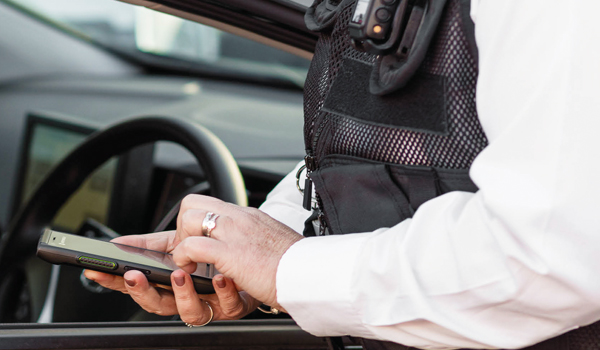Getting mobile
With significant pressure on police forces to increase visibility and get more officers out on the beat, mobile two-way access to mission-critical data has become more important than ever. Designing mobile solutions around the user rather than the technology is essential.

With significant pressure on police forces to increase visibility and get more officers out on the beat, mobile two-way access to mission-critical data has become more important than ever. Designing mobile solutions around the user rather than the technology is essential.
Mission-critical networks are at the heart of the successful deployment of mobile data solutions, and this was never better illustrated than during the July 2005 London bombings.
At the time, the G8 Summit was taking place in Edinburgh, Scotland, and many of Londons police officers were seconded to protect the event. When the incident occurred, officers in Edinburgh could immediately liaise over their radios with their colleagues in London to provide advice and agree on the personnel to be sent to the capital.
Between 2am on July 4 and 2am on July 9, the Airwave network provided instant connectivity (measured in milliseconds) for over 1.5 million person-to-person and group conversations, with users operating a variety of handsets and terminals.
It was an example of the resilience of the Airwave system, the dedicated digital voice and data network for the police and emergency services, which has been used by all police forces in England, Scotland, Wales an d Northern Ireland since 2005.
Essentially, mission-critical data is intelligence delivered over dedicated, secure, reliable, Internet Protocol (IP)-based networks; the information is delivered quickly with speeds that support a wide range of applications. The intelligence can be shared by key staff members, whether theyre based in the control room or in the field.
Mission-critical networks were designed for public safety use, so if a major crisis strikes, the capabilities of professionals from a multitude of agencies can be brought together as one to respond to the problem.
Thanks to the integration of IP technology, which provides lower cost systems to build and connect networks, its becoming more cost-effective to construct and maintain coverage. Motorola, specialists in wireless and broadband communications, believes the technical strengths of systems like its Dimetra IP network, coupled with more favorable business models, ensure that, for an increasing number of governments and agencies, the case for building critical communications networks has changed it has moved from the compelling to the unequivocal.
With technology coming to the forefront in policing, Peter Harris, head of mobile data at communications specialists Arqivas public safety division, believes 2008 is another important year for police forces across the UK.
Sir Ronnie Flanagan [HM Chief Inspector of Constabulary] put forward his interim review of policing to the Home Secretary in 2007 with a final report due to come out early this year, so the focus will yet again be on what changes need to be made to improve police efficiency, availability and effectiveness, said Mr Harris.
Among Sir Ronnies recommendations is the introduction of mobile data technology to provide officers on patrol with more information and the advent of virtual courts, whereby defendants could appear live via video link at a magistrates` court from a police station in a time-saving measure.
With the policing family having to rise to new performance challenges set, whilst continuing to focus on reducing crime, pressure will be felt by forces up and down the country, said Mr Harris.
Technology will play a crucial role in helping forces meet such stringent targets. Enabling secure and robust communication channels between officers, the control room and back office information databases is essential and new technologies have been developed to help streamline this process.
In particular, demand for better communication and information is forcing the issue of mobile data to the top of the agenda, providing the motivation for continuous development within the market. Mobile data technologies provide the police w



